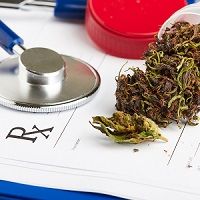Article
Physician Residents Report Confusion Over Marijuana Pharmacology
Author(s):
Despite medical cannabis being legalized in 28 states, a majority of future internists expressed concern for their limited knowledge.

The first study medical competency study of physicians-in-training during the legalized marijuana era has found that doctors have a poor understanding of cannabis pharmacology.
The study, presented at the 2017 Annual CHEST Meeting in Toronto, ON, Canada, assessed the preparedness of resident physicians in the New Jersey medical cannabis program.
Researchers from Saint Peter’s University Hospital (SPUH) in Jersey City NJ, and Rutgers Robert Woods Johnson Medical School in New Brunswick, NJ, set preparedness primary objectives for the resident physicians in terms of understanding the state’s cannabis program regulations, and an evaluated level of comfort in counseling patients on cannabis products.
The cross-sectional study was conducted with a web-based questionnaire distributed to all residents in SPUH’s internal medicine, obstetrics, gynecology, and pediatrics programs. The questionnaire featured 15 questions, both multiple choice and Likert-type scale based (from 1 to 10, with 1 being poor and 10 being excellent).
Of the 51 resident physicians to respond to the questionnaire, 42 (83%) were in the internal medicine program. A majority of the participants were in midyear post graduate training (PGY) — PGY 2 and PGY 3 comprised 35 (69%) of the participants.
On the Likert scale, physician residents reported a mean 3.1 out of 10 in understanding medical pharmacology, which was comparable to self-report competency between levels of training. Internal medicine residents considered themselves to be more competent in pharmacology than the other 3 programs combined.
Researchers noted that 19 (38%) of participants believed medical marijuana was a US Food and Drug Administration (FDA) approved prescription drug, and another 39 (76%) did not know the category of marijuana under the Controlled Substances Act.
Internal medicine residents alone reported a mean 3.6 out of 10 in preparedness to counsel patients on medical marijuana, and the overall participant population reported concerns of safety, addiction potential, and limited beneficial therapy evidences.
Medical marijuana use is currently legal in a majority (28) of states in the US, researchers noted. Pharmaceutical sales could reach $21 billion in the US market by 2020 — despite a lack of proportional preparedness in medical education surrounding marijuana’s pharmacology.
“We found physicians self reported poor understanding of medical cannabis pharmacology and cannabis program registry regulations,” researchers wrote. “Lack of awareness and comfort in addressing the therapeutic aspects of medical cannabis is an emerging yet essential component to continuing medical education.”





